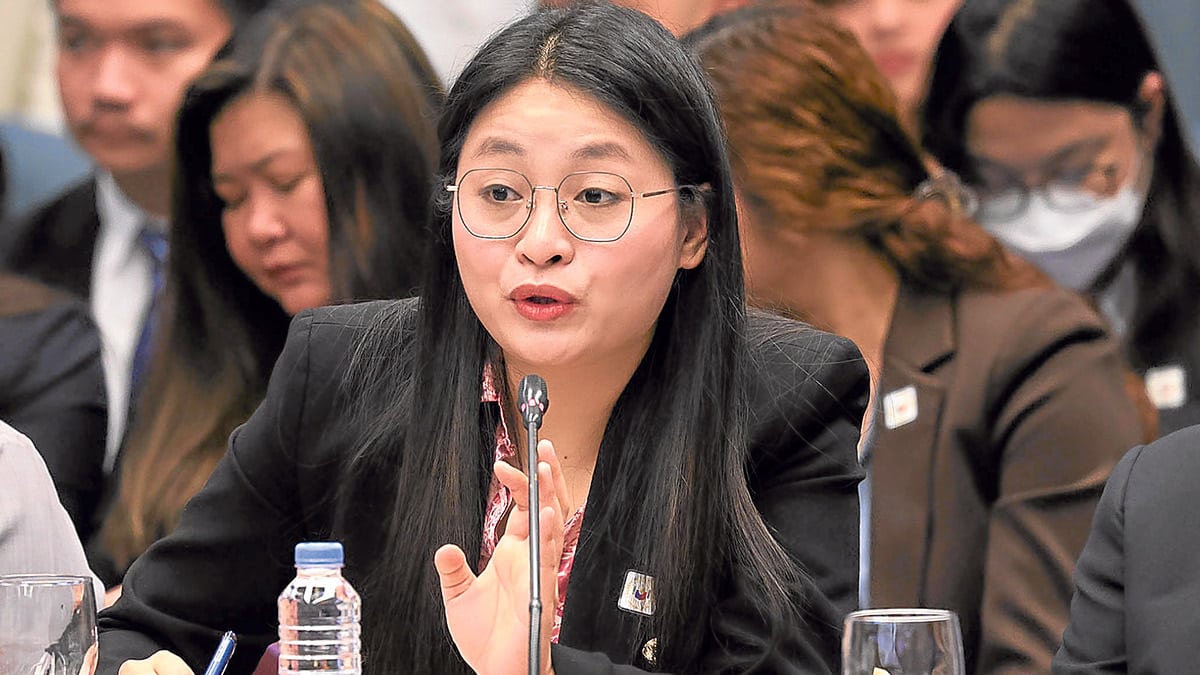Alice Guo faces quo warranto disqualification case filed by SolGen
MANILA, Philippines — Embattled Mayor Alice Guo of Bamban, Tarlac province, now faces a quo warranto case that could lead to her removal from public office.
Solicitor General Menardo Guevarra on Monday filed a quo warranto petition against the suspended mayor before the Manila Regional Trial Court.
The case was assigned to Branch 34 of the Manila court under Judge Liwliwa Hidalgo-Bucu.
READ: Guo sighted in Bulacan; law enforcers urged to arrest mayor in a month
According to Rule 66 of the Rules of Court, a quo warranto petition is a legal action against a person who “usurps, intrudes into, or unlawfully holds or exercises a public office, position or franchise.”
Article continues after this advertisementThe Office of the Solicitor General (OSG) is mandated under the Rules of Court to commence a quo warranto action “when he has good reason to believe” that usurpation of public office can be established by proof.
Article continues after this advertisementBased on the OSG’s 45-page petition, Guo—by her very “ineligibility”—is “usurping or unlawfully holding the position” of the Office of the Mayor of Bamban, Tarlac, and “illegally exercising” its duties and responsibilities.
Nationality question
The OSG also extensively addressed Guo’s nationality, stating her Chinese name Guo Hua Ping and asserting that she is not Filipino.
It cited authenticated records showing that Guo Hua Ping, born in Fujian, China, on Aug. 31, 1990, was a holder of a Chinese passport.
“At its core, Filipino citizenship is a primary requirement for public officers, ensuring their unwavering loyalty and dedication to the nation,” the OSG said in its petition.
“As abundantly shown by various government records, respondent Guo Hua Ping, a.k.a. Alice Leal Guo is the daughter of two Chinese citizens, Lin Wenyi and Guo Jian Zhong,” the agency also said, thus affirming before the court earlier disclosures about the mayor.
The OSG said further that there was “no credible official record or document establishing that respondent Guo Hua Ping is a citizen of the Philippines, either by birth or by naturalization.”
It noted as well that there is no record in the Philippine Statistics Authority (PSA) of a birth certificate indicating her parents to be Angelito Guo and Amelia Leal, as she had claimed.
“These negative certifications, coupled with the documents showing that respondent Guo Hua Ping’s parents are Chinese nationals Guo Jian Zhong and Lin Wenyi, point to the fact that Angelito Guo and Amelia Leal Guo are fictitious individuals created for the sole purpose of falsifying respondent Guo Hua Ping’s birth records,” the OSG said.
It also argued that Guo committed acts of “serious dishonesty [by] representing herself as ‘Alice Leal Guo’ in all her public and private dealings—a name that is different from the name she registered with the Bureau of Immigration (BI) upon her entry [into] the Philippines.”
Witnesses
The OSG cited as well her “repeated misrepresentation” of herself as a Filipino citizen in her Filipino passport, voter’s registration records, and certificate of candidacy, as well as in her “failure to truthfully provide answers” in the Senate hearings on the Pogo (Philippine offshore gaming operator) industry.
So far, the OSG plans to present 11 witnesses—among them, officials of the BI, PSA, National Bureau of Investigation, and other agencies.
The Inquirer sought comment from Guo’s camp, but it had yet to respond on Monday night.
The last time the OSG resorted to a quo warranto petition was in March 2018, when then-Solicitor General Jose Calida sought to void Maria Lourdes Sereno’s 2012 appointment as chief justice following her criticism of the drug war of then President Rodrigo Duterte.
Sereno, who also faced opposition in the Supreme Court, was ousted two months later when the high court ruled in favor of Calida’s petition. One of her critics, Teresita de Castro, succeeded her as chief justice in August of that year.
